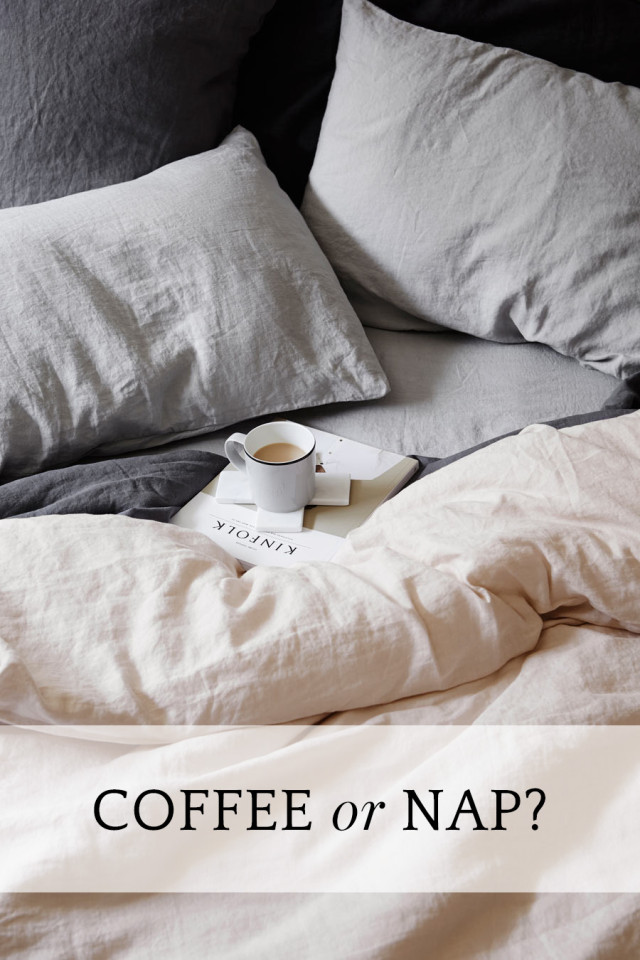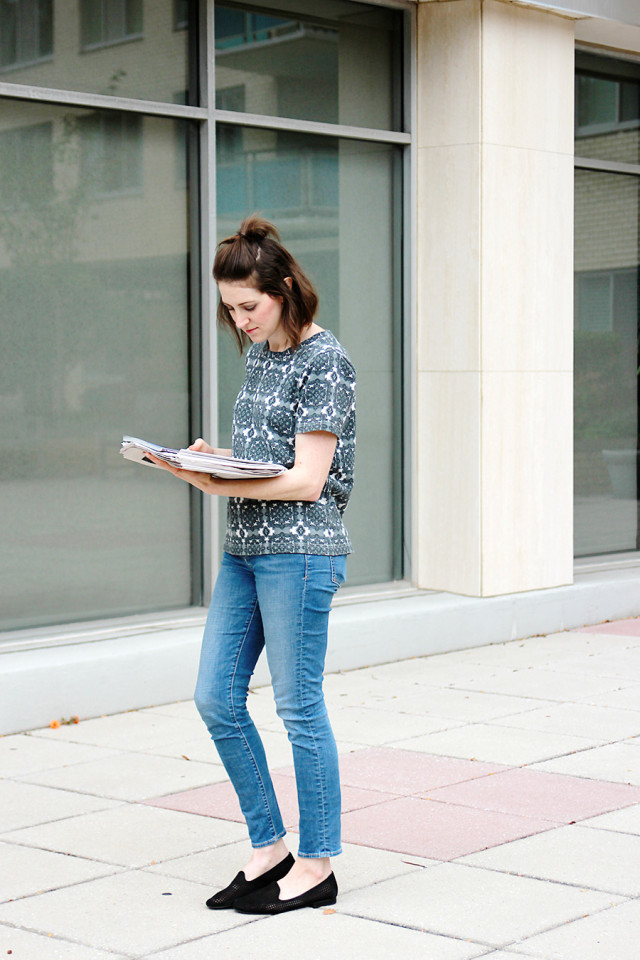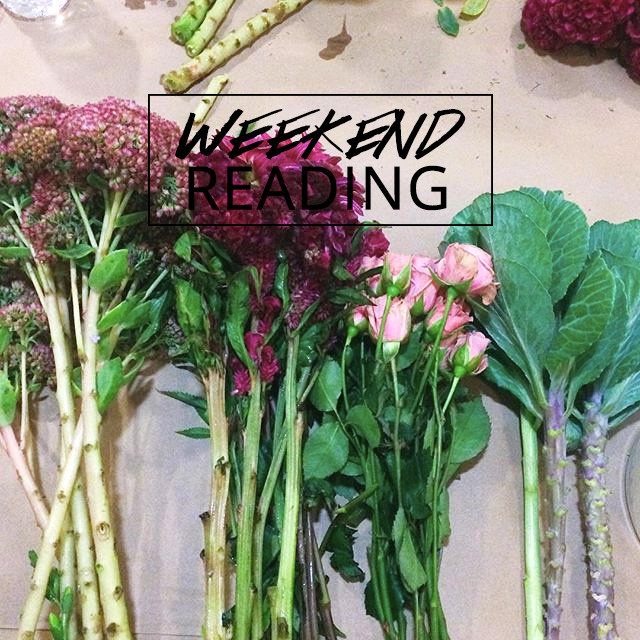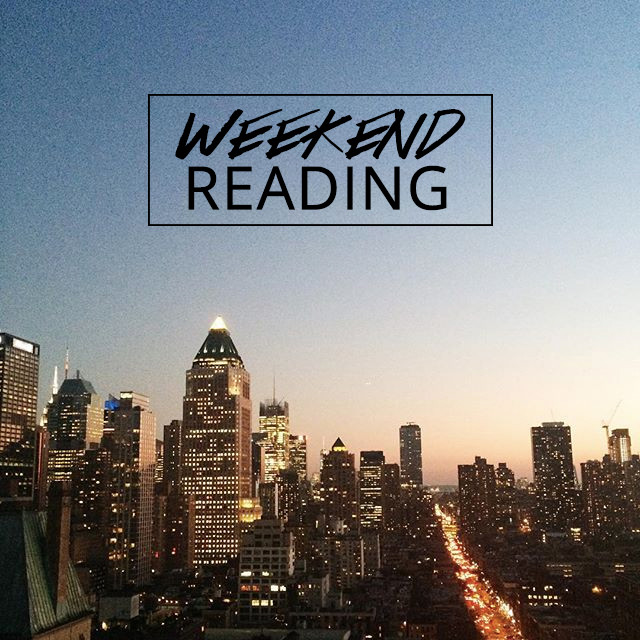If you dropped by my house at 1 PM, you’d notice something peculiar: Silence.
In the early afternoon, my home is finally, blissfully quiet. Levi’s at preschool, Asa’s been asleep for an hour, and the dog’s curled up on the sofa cushion.
After I eat my lunch, I usually grab a seat on the couch next to Briscoe and open up my laptop to work on a blog post or schedule some social media updates. My window of uninterrupted silence typically lasts only two hours, so there’s pressure to make the most of it.
However, between my post-lunch food coma, my chronic motherhood-induced exhaustion, and the cozy quietness of the afternoon, all I always want to do is snuggle up under a throw blanket for a nap. Every day I have to decide: Do I drink coffee or take a nap?
Since I don’t have the luxury of an eight-hour work day, I have to take advantage of any pockets of quiet time I can find. But as a sleep-deprived mother of two, I’m desperate to catch up on my zzz’s. A well-rested mom is a less cranky mom.
What would you do? Nap or pour yourself another cup of coffee?
(Yes, I realize this a very specific problem for work-at-home or stay-at-home moms. Unless you work in an office that encourages you to nap under your desk, many of you have no choice but to chug coffee when your cortisol levels start to drop.)
Science says nap. According to research, napping can improve perceptual learning, procedural motor skill, and verbal memory more than 200mg of caffeine can — as long as you’re asleep for 60 to 90 minutes. That’s a long time when you’re being haunted by a never-ending to-do list.
A power nap lasting 10 to 30 minutes is your next best bet, but it has to be timed just right. If you sleep past 30 minutes but wake up before a full hour, you risk sleep inertia, or grogginess, that can last several hours. And if you nap too late in the afternoon, you can throw off your circadian rhythm, making it harder to fall asleep that night.
Meanwhile, coffee will make you feel more physically awake but “may not be an adequate substitute for the memory enhancements of daytime sleep,” according to the study. In other words, caffeine may prevent your eyelids from shutting, but your Toasted Graham Latte won’t necessarily improve your ability to crunch numbers or string sentences together.
When I’m no longer able to keep my eyes open or concentrate on my work, I try a “coffee nap” — drinking a cup of coffee and then setting my iPhone alarm for a 15-minute nap. In a series of studies, sleep researchers in England found that coffee naps were more effective than cold air, a short nap, a break with no nap, or a 10-ounce cup of strong coffee. The idea is that the caffeine, which takes about 20 minutes to kick in, will start having its physiological effects just as you are waking up.
The key is, of course, to fall asleep before the caffeine starts doing its job. And since I tend to sip rather than gulp my coffee, I often end up reaping the benefit of just the caffeine and not of the actual daytime sleep. Which isn’t the worst thing in the world, I suppose, except that blog posts hard much harder to write when I can’t remember what it is I wanted to say.
How do you stay awake when you start feeling sleepy during the day?
PS – These are the two best times of day to drink coffee.
(via Lifehacker, image via Cultiver)








